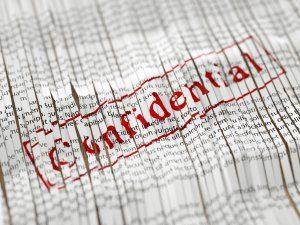May 16, 2023
The Importance of Shredding Confidential Information

In today's increasingly interconnected world, the security and protection of sensitive information have become paramount. While digital safeguards are vital, the significance of physical document security should not be underestimated. Among the simplest yet most effective methods for safeguarding confidential information is the practice of shredding. Whether it pertains to personal data, financial records, or sensitive business documents, shredding plays a crucial role in mitigating risks such as identity theft, corporate espionage, and unauthorized access. This article delves into the reasons why shredding confidential information is essential and explores the numerous benefits it offers in maintaining privacy and security.
-
Prevention of Identity Theft:
Identity theft is a pervasive and costly crime affecting millions of individuals worldwide. Discarded documents containing personal information such as names, addresses, social security numbers, and bank details can be a goldmine for identity thieves. By shredding these documents, individuals and organizations can significantly reduce the risk of such information falling into the wrong hands. Shredding ensures that the data becomes irretrievable, making it virtually impossible for criminals to piece together the shredded documents.
-
Compliance with Data Protection Regulations:
Data protection regulations, such as the General Data Protection Regulation (GDPR) and the California Consumer Privacy Act (CCPA), impose strict obligations on organizations to protect the privacy of individuals. Failure to comply with these regulations can lead to severe financial penalties and damage to an organization's reputation. Shredding documents containing sensitive personal or financial information demonstrates a commitment to privacy and helps organizations stay in compliance with relevant data protection laws.
-
Safeguarding Business Confidentiality:
In the corporate world, trade secrets, proprietary information, and strategic plans are the lifeblood of businesses. These confidential documents, if obtained by competitors or malicious actors, can have devastating consequences. Shredding confidential business information before disposal is crucial in preventing intellectual property theft, corporate espionage, and other forms of unauthorized access. It helps protect a company's competitive advantage, maintains client trust, and safeguards its reputation.
-
Environmental Responsibility:
Shredding confidential information not only enhances security but also contributes to environmental sustainability. Recycling shredded paper reduces the strain on natural resources and minimizes the need for additional paper production. By shredding and recycling, individuals and organizations can actively participate in responsible waste management practices and reduce their carbon footprint.
-
Protection against Dumpster Diving:
Dumpster diving, the act of rummaging through trash to find discarded information, is a common method used by identity thieves. Even in an increasingly digital world, physical documents can still contain valuable information. By shredding sensitive documents, individuals prevent unauthorized access to their personal and financial data, making it significantly harder for dumpster divers to exploit discarded materials.
Conclusion:
In an era where information is a valuable currency and privacy breaches can have severe consequences, shredding confidential information has become an essential practice. By shredding documents containing personal or sensitive information, individuals and organizations can effectively protect themselves against identity theft, comply with data protection regulations, safeguard business confidentiality, contribute to environmental sustainability, and prevent unauthorized access. Embracing the practice of shredding not only promotes privacy and security but also demonstrates a commitment to responsible information management.
